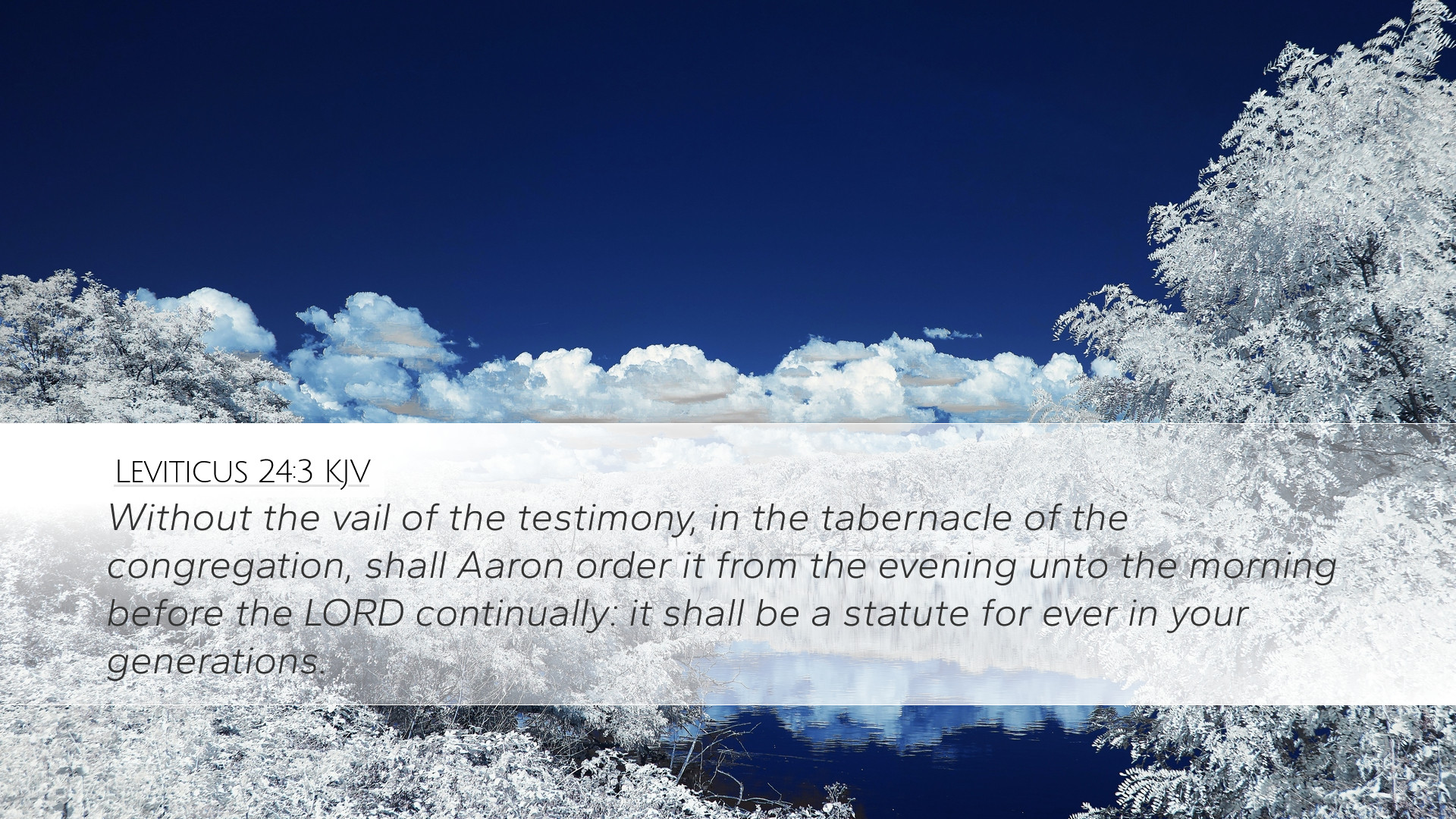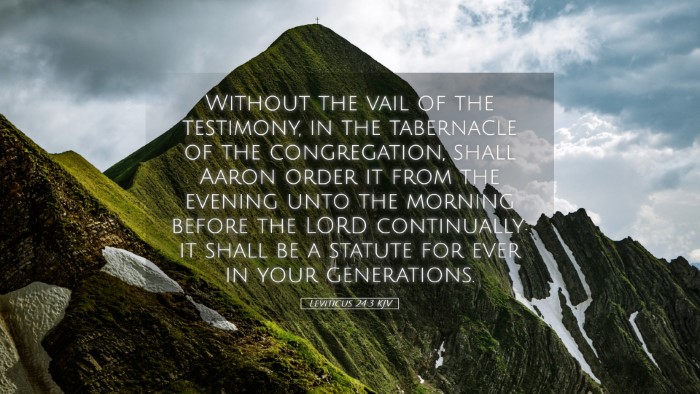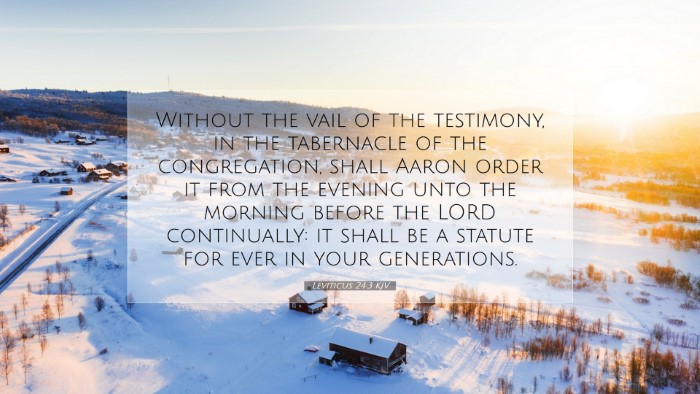Commentary on Leviticus 24:3
Verse: "Outside the veil of the testimony, in the tabernacle of the congregation, shall Aaron order it from the evening unto the morning before the LORD continually: it shall be a statute forever in your generations." (Leviticus 24:3)
Contextual Background
The book of Leviticus serves as a manual for the Levitical priests and outlines the holiness and the proper conduct required for worship. In this specific passage, the focus is on the continual presence and service of the Lord, symbolized through the ordering of the lamps on the golden lampstand. This chapter dictates the fundamental practices concerning the sacred lamp in the tabernacle.
Matthew Henry's Insights
Matthew Henry elaborates on the significance of the continual light in the tabernacle, representing the unhindered presence of God among His people. He notes that the lamp was not merely a functional object but a sacred symbol that reflected God's everlasting covenant with Israel.
- Symbolism of Light: Henry emphasizes that light, throughout scripture, is often symbolic of purity, guidance, and the divine presence of God.
- Priestly Duty: The verse highlights Aaron’s responsibilities as a high priest; it signifies not just a ritualistic task but a representation of the ongoing relationship between God and His people.
- Statute Forever: The command is given a perpetual aspect, indicating that God’s light would continually dwell among His people, and this practice was meant to serve as a lasting covenant throughout generations.
Albert Barnes' Analysis
Albert Barnes provides an analytical perspective on the logistics and the intrinsic meaning of the passage. He posits that the continual setting of the lamps highlights the importance of daily worship and dedication, reflecting the necessity for constant spiritual vigilance.
- Position of the Tabernacle: Barnes examines how the positioning of the lampstand and the veil signifies separation and holiness, stressing that worship should always be performed in reverence to the Holy One.
- Historical Context: He notes the historical relevance, explaining how this statute continues through the generations, impacting both Jewish and Christian traditions regarding the significance of light in worship.
- Spiritual Application: Barnes concludes with an exhortation for believers to maintain their spiritual fervor, likening the lamp to the need for Christians to be lights in the world, continuous in their witness and devotion.
Adam Clarke's Commentary
Adam Clarke offers profound insights regarding the ceremonies associated with the lampstand. He details the meticulous nature of the priests’ duties and the sacred importance of maintaining a divine order in worship.
- Acts of Service: Clarke identifies the daily service of the priests as a model of faithfulness and dedication; the practice was not merely ceremonial but instrumental in teaching holiness and devotion.
- Significance of the Evening and Morning: The specific time for tending to the lamps signifies the importance of both beginnings and endings in worship, paralleling the rhythm of the believer’s life.
- Invocation of God's Presence: Clarke stresses that by following God’s commands regarding the lamp, the priests were actively invoking God’s presence, making the space sacred and ensuring that the people remained spiritually oriented toward God.
Theological Significance
The theological implications of Leviticus 24:3 extend beyond the physical act of maintaining the lamps. The continual light can be seen as a precursor to Christ, who proclaims Himself as the "Light of the World" (John 8:12), thus fulfilling the role of maintaining the divine connection between God and humanity.
- Christ as the Fulfillment: Just as the lamp was to be maintained perpetually, Christ’s light is eternal, offering guidance and hope.
- Call to Vigilance: The believers today are similarly called to be vigilant in their worship, ensuring that their lives reflect the light of Christ in a darkened world.
- Application of Holiness: The principles of holiness, reverence, and dedication reflected in this verse encourage modern believers to foster their relationship with God through continuous worship and devotion.
Conclusion
In conclusion, Leviticus 24:3 not only underscores the priests' responsibilities but also sets forth the theological basis for light's symbolic significance in worship. Insights from Matthew Henry, Albert Barnes, and Adam Clarke collectively provide a robust framework for understanding this passage. For pastors, students, theologians, and scholars, this verse serves as a call to engage in ongoing relationship with God, illuminating the path for both spiritual leaders and laypersons as they navigate their faith journeys.


